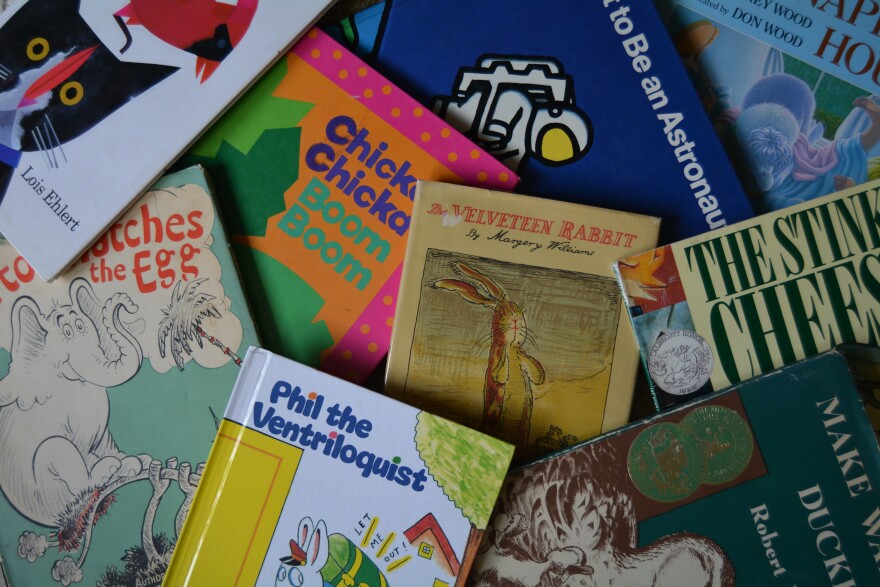Being separated from your family while incarcerated can be painful, if not traumatic. One library in the North State is trying to make the experience less harmful for families. The Plumas County Library’s “Families Read Together” program allows inmates at the county’s jail to choose five books to read and record for their kids. The video and books are then mailed to their family. NSPR’s Sarah Bohannon recently spoke with County Librarian Lindsay Fuchs and Library Aide Sharon McKay about the program.
This interview has been edited for clarity and length.
On why McKay says the program was started
The main goal of library is to increase literacy and the jail population is always an underserved demographic. We can help encourage literacy within the jail, and then literacy within the family, and helping keep the family members connected through literacy would be the best of all worlds.On why Fuchs says literacy can help stop intergenerational incarceration
“When somebody is incarcerated and they have a family on the outside, there's a lot of issues that go into the family's mental health … especially when you're talking about young kids, it’s the anxiety, the depression, the worry, the fears that maybe the guardian isn't coming home, that they're going to get hurt. By connecting the incarcerated individual and their families, it is a way of hopefully combating even just a little of that mental health.”— Lindsay Fuchs, Plumas County Librarian
This is one program out of hundreds, and thousands, and millions even that jails are doing, that different organizations are bringing into jails to help incarcerated individuals so that they don't go back to jail, that they have better options when they come out. There's also studies that were showing, for instance, intergenerational incarceration and how to kind of put a stop to that, and one of those stops is providing literacy. And so it's not just about helping the individual, — which is very important and is a worthy goal on its own, — but it's also helping stop this mass incarceration. Which I mean you can't do with literacy — there's a number of other factors that go into mass incarceration rates that literacy is not going to be able to help — but it is a way of helping stop that intergenerational incarceration rate.
On whether Fuchs thinks the program helps the mental health of families coping with a loved one being incarcerated
Definitely. When somebody is incarcerated and they have a family on the outside, there's a lot of issues that go into the family's mental health and the incarcerated individual’s health, and there's an isolation factor for the incarcerated person. But there's also, especially when you're talking about young kids, it’s the anxiety, the depression, the worry, the fears that maybe the guardian isn't coming home, that they're going to get hurt. By connecting the incarcerated individual and their families, it is a way of hopefully combating even just a little of that mental health. Just the factor of being able to read to your child is a huge thing, I think. They’re not able to do it in person, but it's a way of kind of getting that step and its way of showing the child, like, hey, their guardian is still thinking about them, they're still caring about them, just because they're not physically there at that time, or they made a mistake doesn't mean they don't love them. So, I think that does really help long-term mental health.
On how McKay hopes the program is received by families
I always picture them as — when they're reading the book and watching their loved one read to them — like Lindsay said, is that they can say, ‘Oh, you know, they're thinking about me, they're wanting to be connected to me,’ but they're also like, ‘Oh, maybe he's reading the book at the same time I am.’ And that it makes such a deep connection. So, it's just another way of deepening that connection and making sure that they know that even though they're away … ‘I'm still with you, and I'm not going anywhere.’



